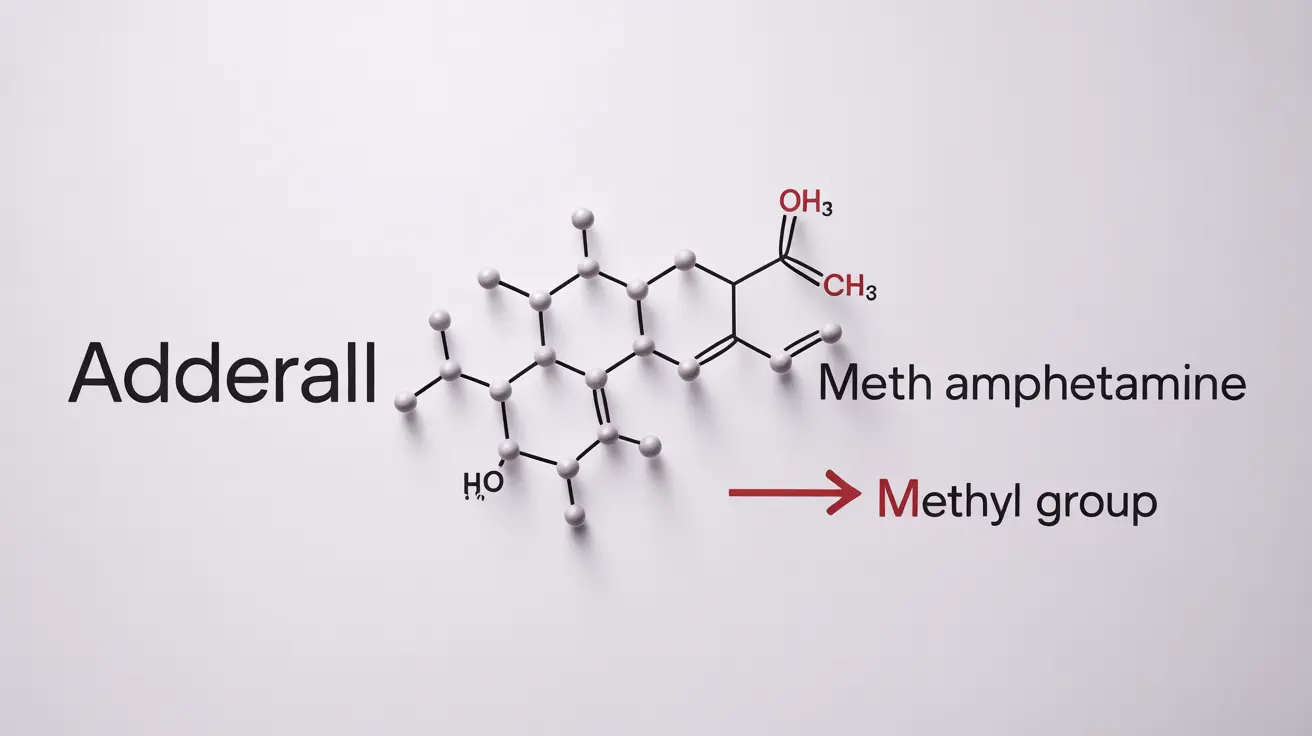While Adderall and methamphetamine may share some chemical similarities, they are distinctly different substances with varying medical applications, risks, and legal status. Understanding these differences is crucial for patients, healthcare providers, and the general public to make informed decisions about medication use and recognize the dangers of illicit drug abuse.
Chemical Composition and Structure
Adderall contains a combination of amphetamine and dextroamphetamine, while methamphetamine has a slightly different molecular structure. This seemingly small chemical variation leads to significant differences in how these substances affect the body and brain.
Molecular Differences
The key distinction lies in methamphetamine's additional methyl group, which allows it to cross the blood-brain barrier more rapidly and produces more intense effects. This structural difference is largely responsible for methamphetamine's increased potency and higher potential for abuse.
Medical Applications and Legal Status
Adderall is an FDA-approved medication prescribed primarily for treating Attention Deficit Hyperactivity Disorder (ADHD) and narcolepsy. When used as prescribed under medical supervision, it can effectively manage symptoms and improve quality of life for patients.
Prescription Methamphetamine
While lesser known, a prescription form of methamphetamine (Desoxyn) exists and is legally prescribed in rare cases for severe ADHD or extreme obesity. However, its use is highly restricted due to significant risks and potential for abuse.
Impact on the Brain and Body
Both substances affect the central nervous system by increasing dopamine levels, but their mechanisms and intensity differ significantly. Adderall's effects are more gradual and controlled when taken as prescribed, while methamphetamine produces an intense, rapid onset of effects.
Addiction Potential
Methamphetamine carries a substantially higher risk of addiction compared to Adderall. This increased risk stems from its more potent effects on dopamine release and its ability to rapidly cross the blood-brain barrier, leading to more intense euphoria and stronger cravings.
Health Risks and Side Effects
While both substances can have side effects, the risks associated with methamphetamine use are significantly more severe. Illicit meth use often leads to serious health complications, including severe dental problems, skin sores, and cognitive impairment.
Long-term Consequences
Methamphetamine abuse can cause more rapid and severe deterioration of physical and mental health compared to Adderall misuse. However, any form of stimulant abuse can lead to serious health complications and should be avoided.
Frequently Asked Questions
- What is the chemical difference between Adderall and methamphetamine?
Methamphetamine has an additional methyl group in its chemical structure that Adderall lacks. This difference allows methamphetamine to cross the blood-brain barrier more easily and creates more intense effects.
- How do the medical uses of Adderall and prescription meth differ?
Adderall is commonly prescribed for ADHD and narcolepsy treatment, while prescription methamphetamine (Desoxyn) is rarely used and only in specific cases of severe ADHD or extreme obesity where other treatments have failed.
- Why is methamphetamine considered more addictive and dangerous than Adderall?
Methamphetamine's chemical structure allows for faster absorption and more intense effects on the brain, leading to a stronger euphoric response and higher addiction potential. It also typically causes more severe physical and psychological damage.
- What are the risks and side effects of abusing Adderall compared to meth?
While both substances can cause serious side effects when abused, methamphetamine typically leads to more severe consequences, including rapid physical deterioration, severe dental problems, and significant cognitive impairment. Adderall abuse, while dangerous, generally produces less severe immediate effects.
- Can methamphetamine be legally prescribed like Adderall for ADHD treatment?
Yes, a prescription form of methamphetamine (Desoxyn) exists and can be legally prescribed. However, its use is highly restricted and reserved for specific cases where other treatments have proven ineffective, due to its high potential for abuse and serious side effects.




